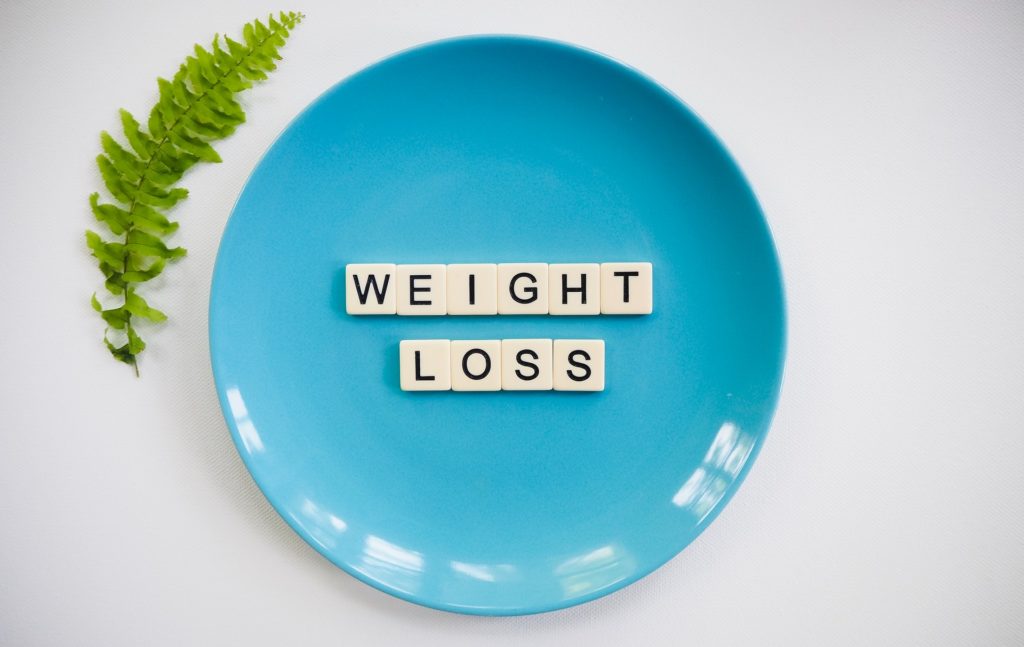Why Am I Not Losing Weight In A Calorie Deficit? I’m pretty sure you’re asking yourself this question especially if you’re on a calorie deficit method and wanna know what is causing the problem!
Losing weight has so many steps and ways to do, some of which are healthy and others are very harmful to the body and health. That’s why it is very important to stick to a healthy way of losing weight.
Being on a calorie deficit is one of the true and healthy ways to lose weight, but what happens if you don’t lose weight while using the calorie deficit method?
We will be discussing the causes of that in this article.
Table of Contents
What is a calorie deficit?
A calorie deficit is a type of diet that limits the food you consume in addition to doing regular physical activity or exercise to burn more calories than you consume.
This is a very important method of losing weight, where the body retains less fat and uses it as a source of energy, which invariably leads to weight loss.
How Many Calories Does One Need To Cut Down In A Day To Lose Weight?

When using the calorie deficit method to lose weight, it’s important to note that making little steps such as gradually reducing the number of calories you consume in a day is the safest way to go about it.
It’s not like a weight-loss drug that you would take to lose a few pounds, actually, it’s a better way to lose weight while maintaining your health as weight-loss drugs could cause fatal side effects.
Simply, it’s a gradual process that leads you to your actual goal in a healthy way.
If you don’t do it gradually and cut your calorie intake excessively, it might result in many health issues such as gallstones, constipation, dehydration, and nausea among others.
But the ideal number of calories you should cut down using a calorie deficit method ranges from 500 to 1,000 calories.
Why Am I Not Losing Weight In A Calorie Deficit? 14 Common Reasons:
If you have been consistent and strict in tracking your snacks and meals, but can’t see any results of losing weight, which will leave you confused and bothered, here are the reasons why you may not lose weight with a calorie deficit:
1- Not Getting Enough Sleep
Not getting enough sleep can hinder you from losing weight even if you are on a calorie deficit because it increases stress and makes you feel irritated and restless.
Many studies showed that sleeping less than 7-9 hours per night can lead to a higher risk of obesity among adults by 41%.
To fix this issue, if you’re having a hard time sleeping, high-intensity training, moving a lot during the day, not drinking caffeine after noon, meditation, and avoiding taking nap during the day can help you sleep better at night and improve your metabolism.
2- Not Exercising Daily
Apart from diets, exercise is another important factor that can help you lose weight effectively.
If you don’t exercise consistently or at all, the possibility of not losing weight even while on a diet is very high.
To combat this problem, make sure to exercise 3-5 days a week and try to be active during your rest days.
Also, the food you consume after exercise plays a major role in helping you lose weight, check out what you should eat after working out.
3- The Wrong Diet Program
Our bodies are all different and therefore, what works for you might not work for another person.
When you are not following a healthy nutritious diet that provides the body with enough protein, fiber, minerals, and vitamins, it becomes harder to lose weight, and it’s not even good for your mental and physical health.
Eating unhealthy meals that contain high amounts of sugar and refined carbohydrates can make you stressed, feel tired, and experience mood swings.
So to avoid this issue, Change your diet and look for a more suitable diet for you that is high in protein, vitamins, and fiber to help you feel healthy physically and mentally in addition to losing weight.
4- Stress
Stress is also one of the major reasons why you are not losing weight even on a calorie deficit diet.
If you are stressed or tired, your body produces too much cortisol which is also known as a stress hormone.
Several studies showed that there’s a connection between weight gain and high levels of cortisol.
High cortisol levels can make you consume more food rich in sugar and unhealthy fat.
This stress hormone causes weight gain on the abdomen, face, and body which will make your effort to lose weight undeniably useless.
To fix this issue, try to reduce stress levels by relaxing, spending more time with your friends and family, and talking to them about your problems.
5- Lack Of Inner Peace
When you get restless and tired, you lose focus and possibly fall into depression, which is not good for your health and can prevent you from achieving the desired weight loss goals.
To combat this problem, try to practice meditation, take yoga classes to relax your mind, or do progressive muscle relaxation.
6- Weight Plateau
Another reason why you are not losing weight in a calorie deficit is having a weight plateau problem.
A weight plateau occurs after you have rapidly lost weight at the beginning of your weight loss program, but later the process slows down, then eventually you stop losing weight.
This happened because the initial weight you lost is just water weight and muscle, not the real fat.
To avoid this issue, reduce your carb intake, perform strength training, track everything you eat, consume more protein and fiber, increase your physical activity, and try intermittent fasting.
7- Having A Slow Metabolism
How fast you lose weight depends on body metabolism. Therefore, if you have a slow metabolism, it’s difficult to lose weight faster.
Many factors can be responsible for slowing your metabolism including:
- High-fat diet.
- Dehydration.
- High-stress levels.
- Not eating enough vegetables and fruits.
- Certain medications.
- Strict diets.
- Not getting enough sleep.
- Hormonal imbalance.
- Genes.
To fix this problem, follow a realistic healthy weight-loss plan, sneak more activity into your day, sleep 7-9 hours a day, consult with a doctor if you have a medical condition, eat more food rich in water content, drink enough water, consume leafy greens and vegetables daily, eat enough protein, reduce stress levels, and avoid unhealthy fatty food.
8- You Lost Water Weight
If you have lost any weight before while on a calorie deficit, what you lost might be water weight and not real fat.
And you might also gain weight while on your diet, especially if you are not active enough or if you consume a lot of carbohydrates or take medications that cause weight gain.
To combat this, eat healthy balanced meals, do intermittent fasting, and exercise 3-5 times a week.
9- Increase In Muscle Growth And Bone Density
When you are on a calorie-deficit diet, performing a mix of cardio and resistance exercises will make your body stronger and you will definitely gain muscle.
This makes you weigh bigger when you step onto a weight scale, thereby making you think you have gained more weight but what really happens is that you’ve lost fat and increased your muscle mass.
Also, because of the constant physical activity involved in the weight loss program, your bone density will most likely be increased, which can also affect the numbers on the weight scale.
Actually, this is a good thing that you don’t have to worry about as it means your body becomes stronger and healthier. All you need to do is to give it time and you will lose more fat and be in shape.

10- Menopause
Menopause might also be one of the reasons why you are not losing weight.
It is a common thing for women to not lose weight after and during perimenopause and menopause.
It’s one of the most characteristic signs that mainly all women experience.
Many tend to always gain weight during this period of their lives. It does not matter if they reduce the amount of food they consume, weight gain could happen to them still.
To fix this, Exercising, eating enough protein, and doing intermittent fasting can help a lot and make you lose weight and feel better mentally and physically.
11- PCOS (Polycystic Ovary Syndrome )
Polycystic Ovary Syndrome is a hormonal disorder that affects usually women of reproductive age.
If you are a woman who is battling PCOS, losing weight can be a little difficult because of the level of imbalanced cholecystokinin, leptin, and ghrelin.
And the body tends to produce a high level of insulin when you have this illness which can make losing weight pretty challenging.
But still, nothing is impossible, right? Making some lifestyle changes like eating more healthy meals that are full of nutrients, fiber, and protein in addition to exercising and taking your medications can help manage the symptoms and improve your condition.
12- Hormonal Changes
Whenever you are experiencing any hormonal changes, it is kinda tricky to lose weight.
If you are on your period, you are more likely to have cravings for sugary food which will affect your calorie-deficit diet.
Your body usually during this time of the month retains water, which can make you appear heavier.
Eating unhealthy food during your period like candy, junk food, refined carbs, and soda can dehydrate your body, cause bloating, upset your stomach, and make you put on weight eventually.
To combat this, There are many good foods that you can eat on your period like fruits, dark chocolate, nuts, greek yogurt, chicken, and vegetables.
Those foods will curb your cravings and will not make you gain weight.
13- Your Scale Is Giving You False Information
There might be something wrong with the weight scale you are using.
It might be faulty, and might not be in good condition for usage. Although weight scales are not always accurate, it would be safer to check your weight in the morning when the activities of the day have not influenced your weight.
14- Eating Less Food
When you eat less, your body thinks you are trying to starve yourself and tries to survive by holding onto the fat in the body, which in turn slows down your metabolism, making it very difficult for you to lose weight.
So to fix this, consuming enough healthy meals full of protein, leafy greens, and vegetables daily is the key to maintaining your health and losing fat.

Wrapping Up
A calorie deficit is a very healthy and good way to lose weight, but if you are not losing weight, you may have to check the reasons above and see if you’re doing any of them.
Making changes in both diet and lifestyle while on a calorie deficit will definitely help you lose weight.
So your question, Why Am I Not Losing Weight In A Calorie Deficit? is now fully answered in detail, don’t you agree? Let me know if I missed something.
This article is written by Adam C, and edited by me.
 Adam is a freelance writer who offers to ghostwrite, copywriting, and blogging services. He works closely with B2C and B2B businesses providing digital marketing content that gains social media attention and increases their search engine visibility. . Especially writing content related to health for pacific-analytics.com.
Adam is a freelance writer who offers to ghostwrite, copywriting, and blogging services. He works closely with B2C and B2B businesses providing digital marketing content that gains social media attention and increases their search engine visibility. . Especially writing content related to health for pacific-analytics.com.
